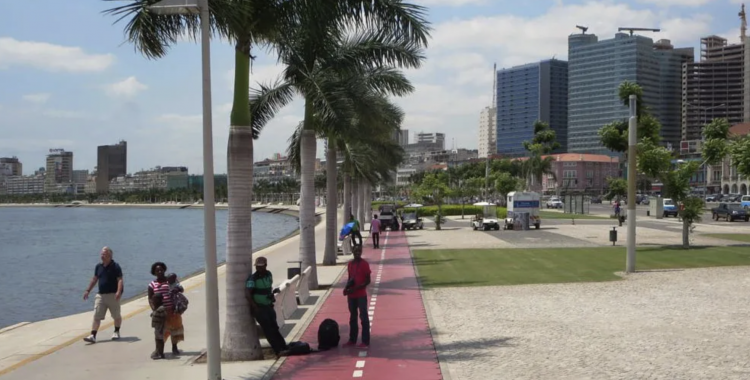According to the report on the Global Economic Perspectives, released this Tuesday in Washington, the economies of the Portuguese-speaking African Countries (PALOP) will accelerate growth in 2024 compared to this year, with the exception of Equatorial Guinea, which sinks into recession, and Guinea-Bissau, which maintains this year's expansion.
Thus, according to the report, Mozambique will be the Portuguese-speaking economy with the fastest growth, with an expected expansion of 8 percent next year, which cements the 5 percent growth forecast for this year.
Cape Verde, still recovering from the significant drop in tourism revenues due to the covid-19 pandemic, is expected to register growth of 4.8 percent this year and 5.4 percent in 2024, confirming the robustness of the economic recovery.
Guinea-Bissau is expected to maintain growth of 4.5 percent this and next year, while Angola is unlikely to be able to maintain the growth of 2021, recorded in the year following five years of economic recession.
The largest Portuguese-speaking African economy is therefore expected to expand by 2.6 percent this year and 3.3 percent in 2024, more or less in line with population growth, which will not be enough to increase the level of per capita wealth.
São Tomé and Príncipe is also expected to accelerate from 2.1 percent this year to 3.4 percent next year, just slightly above the growth recorded in the first year of the pandemic, in 2020, when the economy grew 3.1 percent. cent.
At the opposite extreme is Equatorial Guinea, which remains unable to grow its economy. The most recent Portuguese-speaking country has been plunged into recession since the middle of the last decade, having only interrupted this negative cycle with a growth of 2.9 percent last year.
For 2023 and 2024, the World Bank predicts a recession of 3.7 percent and 6 percent, and in 2025 the estimate is for a new contraction, in the order of 3.1 percent.
At the regional level, the World Bank forecasts economic growth to slow to 3.2 percent this year before accelerating to 3.9 percent in 2024, with economic recovery being threatened by several factors.
"Economies' recovery from adverse economic and climate shocks, already fragile and incomplete in many countries, has been weakened by high and persistent inflation, further tightening in global financial conditions and domestic policies, and outbreaks of violence and social unrest in some countries", reads in the 'Global Economic Perspectives' part of the report on sub-Saharan Africa.
According to the document, released this Tuesday in Washington, sub-Saharan Africa entered 2023 with 35 million more people in a situation of acute food insecurity than in the previous year, a situation aggravated by high inflation, which was above 10 percent in nearly 70 percent of countries.
In April, the World Bank forecast the region's economy to slow to 3.1 percent this year, after growing 3.6 percent in 2022.
Among the main risks presented, the World Bank highlights that "the forecasts are subject to multiple downside risks, as global economic activity could slow down even more than expected if the reopening of the Chinese economy fails, or if global financial conditions become more restrictive" and points out that inflation continues to be worrying.
"If inflationary pressures continue to persist for longer than we anticipate or if there are difficulties in the banking sector of the most advanced economies that spill over into the global financial system, then financial conditions in sub-Saharan African countries could worsen further, triggering new currency depreciations and capital outflows, increasing the risk of over-indebtedness [debt distress, in the original in English]", the report also reads.
Painting the macroeconomic scenario in somber tones, the World Bank says that "many economies in the region, already lacking in fiscal space for maneuver to mitigate the new macroeconomic shocks, are dealing with formidable internal challenges such as persistent poverty, outbreaks of violence and conflict, and adverse impacts of climate change".
The economists of this multilateral financial institution also warn that if there are more extreme weather events with an increase in insecurity in several countries, this could "further worsen growth and result in major humanitarian crises".
............................2023.....2024
Angola....................2.6.........3.3
Cape Verde.............4.8..........5.4
Guinea-Bissau.........4.5.........4.5
Equatorial Guinea...-3.7........-6.0
Mozambique............5.0.........8.3
Sao Tome and Principe..2.1......3.4
SOURCE: Global Economic Prospects







